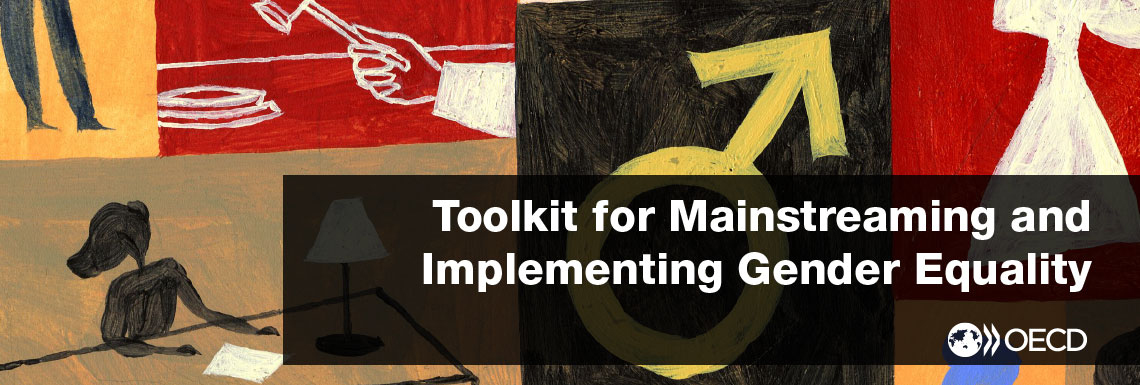Independent and efficient recourse and appeal mechanisms exist and are promoted and known by all public servants
SELF-ASSESSMENT QUESTION
- Are there independent and efficient recourse and appeal mechanisms to enhance gender equality?
- Are those mechanisms communicated to and understood by all civil servants?
WHY IS IT IMPORTANT?
Efficient oversight mechanisms are important for ensuring that gender equality laws and policies are implemented effectively. They exist in many OECD countries and are often provided by independent institutions, such as human rights commissions, supreme audit institutions, ombudsperson offices or other bodies. They provide independent recourse for complaints related to gender-based discrimination or other injustice to public sector employees and/or to a larger population. Such oversight institutions should not only be entirely independent but must also have sufficient authority over government ministries. Rigorous recourse mechanisms are crucial for the longevity and sustainability of gender equality initiatives, including during political change. They also have to be promoted to and well-known by all public sector employees and executives.
Regular gender-related reporting from oversight institutions, and data and knowledge derived from recourse and appeal cases, can provide evidence for improving gender equality actions and priorities in the civil service.
ACTIONS TO CONSIDER
- Establishing effective and independent recourse and appeal mechanisms on gender equality in the public sector;
- Promoting a safe climate to use the recourse and appeal mechanisms on gender equality, without repercussions, including the provisions for the protection of individual public employees who report violations of gender equality policies and legislation;
- Developing an awareness campaign of gender equality legislation and policies, including recourse and appeal mechanisms;
- Incorporate questions about the awareness of available gender-related oversight and recourse mechanisms in civil service employee engagement surveys;
- Include the topic of gender equality legislation and policies, recourse and appeal mechanisms in civil service training modules (in-person or e-learning);
- Including data and information about gender-related recourse and appeal mechanisms and corrective measures taken in response to gender discrimination or inequity in HRM reports.
PITFALLS TO AVOID
- What are the pitfalls to avoid?
- While developing gender equality policies, focus exclusively on positive action without giving appropriate attention to reinforcement mechanisms;
- Avoiding to inform and report on the topic of gender-related recourse and appeal mechanisms;
- Underestimating the value of data and knowledge, derived from oversight institutions’ reports, to design appropriate improvements to existing gender equality policies and initiatives.
COUNTRY EXAMPLES
Norway
Universal Anti-Discrimination Ombud and Tribunal
In Norway, the Equality and Anti-Discrimination Ombud (the Ombud) Act stipulates that the Ombud, as an independent public administrative agency, shall work to promote genuine equality irrespective of gender, ethnicity, national origin, descent, skin colour, language, religion or belief in all areas of society. The Anti-Discrimination Tribunal (the Tribunal) is an independent public administrative agency that consist of a chairperson, a deputy chairperson and six other members. There shall also be four deputy members.
The Ombud and the Tribunal monitor and contribute to the implementation of the Act of 9 June 1978 No. 45 relating to gender equality.
The Ombud also monitors that Norwegian law and administrative practice are in accordance with Norway’s obligations pursuant to the United Nations International Convention on the Elimination of All Forms of Discrimination against Women of 18 December 1979. The Tribunal deals with cases that are brought before it, including cases regarding breaches of the Gender Equality Act.
Unless otherwise provided, the Public Administration Act applies to the activities of the Ombud and the Tribunal.
Austria
Equal Treatment Commission for federal public servants
Based on the Federal Act on the Equal Treatment Commission and the Ombuds Office for Equal Treatment (ETC/OOEC Act, Federal Law Gazette No. 108/1979 as amended in Federal Law Gazette I No. 107/2013), the Equal Treatment Commission was set up to scrutinize matters relating to discrimination under the Equal Treatment Act in Austria. It is a special institution designed to support labour, social and civil courts; among other things, it ensures the equal treatment between women and men in the fixing of remuneration.
Thus, the Senates of the Equal Treatment Commission – when requested to do so by persons entitled to bring cases before it – investigate whether the equal treatment precept has been violated. They may also initiate investigations on their own authority within their terms of reference.

